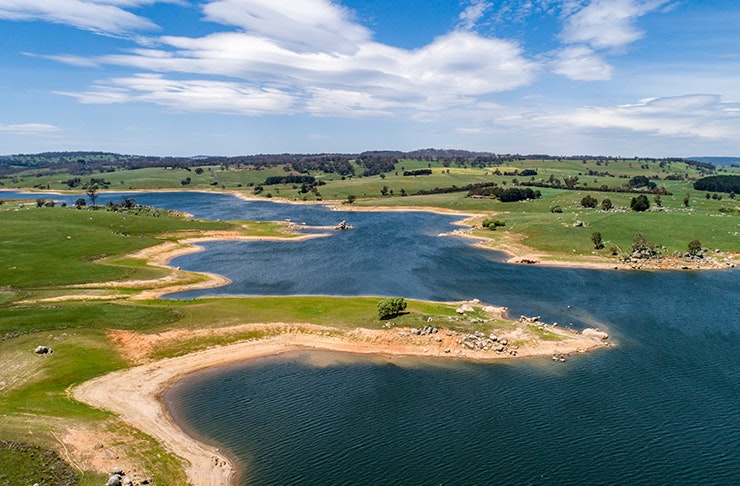



Article by: Hari Yellina
A river in southern New South Wales is currently overflowing, but it is not due to recent severe rain. Jeremy Morton of Moulamein has diverted 1,675 megalitres of irrigation water into the ephemeral lake on his parent’s land, where the family farms rice and other crops, so far, this financial year. In the last two months, about 1,000 megalitres of the rare resource have flowed into the canal, fed to the Morton land via a channel from the Murray River irrigation system. “It’s all about water for manufacturing first and foremost. It does, however, have an environmental benefit “Mr. Morton explained.
Mr Morton’s Moulamein property in the NSW Riverina has 240 hectares of rice in the ground and is halfway through harvesting the crop. Irrigators in the Murray Darling Basin are allotted annual water allotment, but whether they obtain their full right is contingent on the amount of water in the system. Mr Morton’s family bought water on the open market early in the season this year, but when the rains came, he had plenty. “I haven’t bothered to irrigate much this year because I’ve already received 250 mm of rain,” Mr Morton added.
Morton’s Lake was originally a popular place for water skiing and filled naturally once every three years, but water has only made its way there three times since the Millennium drought, which lasted from 2001 to 2009. Mr Morton predicted that water birds would flock to the lake, but that other creatures, including some that are threatened in NSW, would benefit as well. “Southern Bell Frogs can be found in a nearby water body that is shallower and has long spike rush and scattered red gum. So, it’s great habitat for Southern Bell Frogs, and there might even be some Australasian bitterns [a type of bird] in there “he remarked.
Mr Morton stated that it was now simple to remove water from the lake for agricultural reasons. “However, because it’s been so dry and there’s been so infrequent flooding in the last 20 years, we’ve had almost no opportunity to use that licence.” Evaporation and seepage can cause lakes to lose water, but Mr Morton was unconcerned. “The plants will most likely require more in the coming months, but once it warms up, evaporation in this part of the world is roughly a metre and a half a year.” It’s difficult to say how often Mr Morton will be able to fill the lake with irrigation water, although he hopes to do it when water is plentiful or inexpensive to purchase. “There are plenty of occasions when we have no allocation and can’t afford to put water into it,” he explained, “but it works because you end up with a natural drying period, which is probably not a bad thing either.”